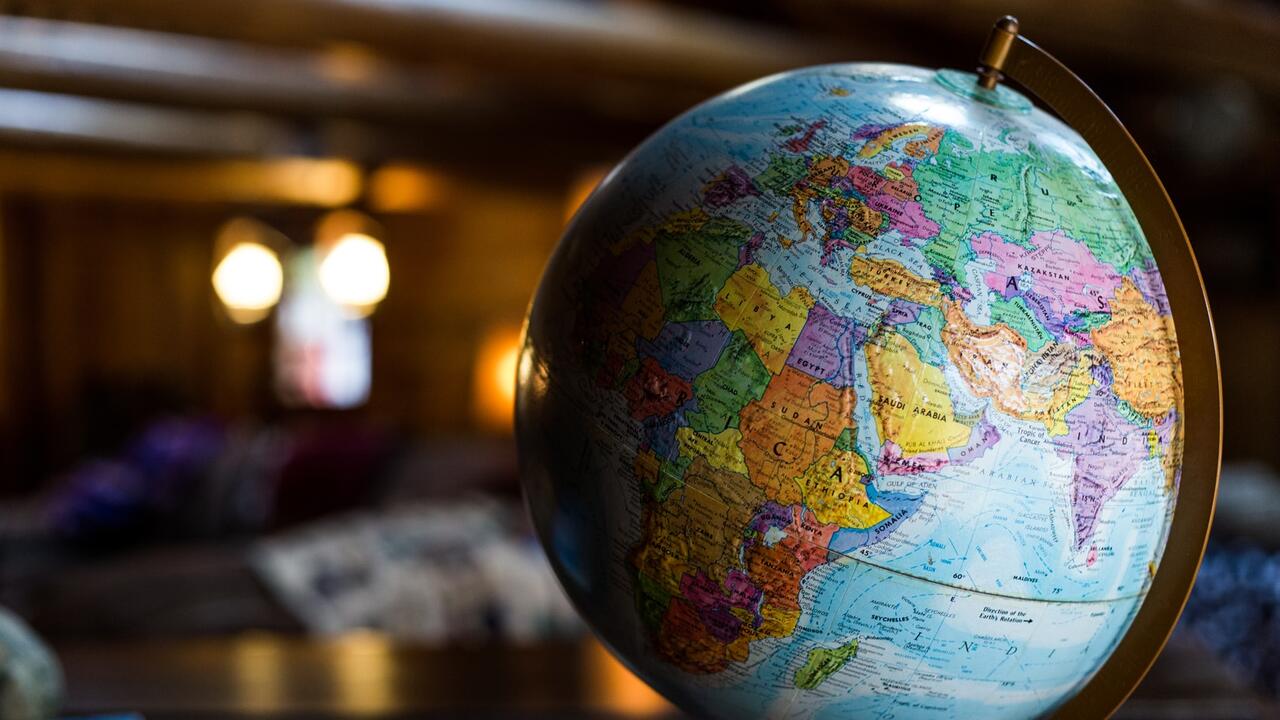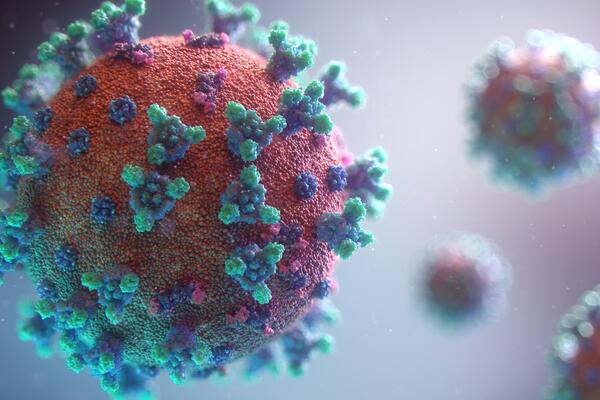
Globalization in our post-COVID world
In the first community lecture of the two-part Beyond the Headlines series, our panel of speakers discuss the ways that politics, trade and tourism will be affected

In the first community lecture of the two-part Beyond the Headlines series, our panel of speakers discuss the ways that politics, trade and tourism will be affected
By Angelica Sanchez University RelationsThe pandemic has revealed global vulnerabilities and opportunities. Will we see new political trends internationally? Will local trade be encouraged? Will we still be able to travel the world?
During Wednesday’s first of two Beyond the Headlines community lecture series, moderated by CBC Radio One’s Craig Norris, University of Waterloo researchers explored whether our post-COVID-19 society will be more responsive or more divisive.
“Economic depression,” is a term Bessma Momani, a professor in Waterloo’s Faculty of Arts, says she is not afraid to use when thinking about the direction of the global economy in a post-pandemic world.
Momani says globalization has meant cheaper products owing to efficiencies in production and cheaper transportation costs. “But what we realized is that ‘just-in-time' delivery from across the world is not going to work very well in a time when we have figurative and literal borders being raised,” she says. “That’s a big challenge.”
Adding to challenges, is the significant economic fallout combined with the extensive financial measures Canada’s government has been deploying to keep Canadians afloat. This could all lead to higher taxation.
“To me, it sounds like there is going to be a political clash between those who want more services and support for the vulnerable being impacted by the crisis and those who want us to rein in spending. We are going to be polarized more than ever,” Momani says.
Sue Horton, a professor in the School of Public Health and Health Systems, expects there may be conflicts among countries over the vaccine. Once a vaccine is available, countries will have to deal with who gets priority.
“The poorest countries are the ones that are going to be left out,” Horton says. “We’re at a difficult time in terms of polarization. The need for cooperation is greater than ever,” Horton says.
Horton added that she hopes for emphasis on diagnostics being a part of Universal Health Coverage. We shouldn’t be thinking about testing just for the COVID-19 virus, but the connection with all diseases and future outbreaks.
“It’s like polio — not until we vaccinate everyone, will we be able to eradicate the risk” Horton says.
The problem, Horton went on, is that there are more than 7 billion people in the world and in order to localize vaccines in lower income countries, it will require a lot of capital to fund these vaccines. Companies such as Amazon, Netflix and Zoom, who have benefited greatly from globalization, should be taxed more to help fund reconstruction.
Amidst the uncertainty of a post-COVID-19 world, Bryan Grimwood, a professor in the Department of Recreation and Leisure Studies, adds that tourism will be a big part of the process to ensure our future is more equitable, resilient and connected.
“While this pandemic has brought a lot of pain and suffering to individuals, families and communities, it’s also creating opportunities for us to rethink and reimagine the world we want to inhabit and create for future generations,” Grimwood says. “With the massive downturn in tourism across the globe, there is a great opportunity to reset our relationships with the planet and with each other, as individuals and as communities.”
On Wednesday, July 15, Waterloo will host its second and final community lecture in the two-part Beyond the Headlines series. The lecture will be hosted by Dr. Sheila Agar, Waterloo’s Faculty of Arts dean, and moderated by CBC Radio One’s Craig Norris.

Read more
The global race to produce a vaccine that will be effective in protecting us from COVID-19

Read more
How the current economy will impact people’s savings and retirement plans

Read more
How to overcome quarantine boredom during the COVID-19 pandemic
The University of Waterloo acknowledges that much of our work takes place on the traditional territory of the Neutral, Anishinaabeg, and Haudenosaunee peoples. Our main campus is situated on the Haldimand Tract, the land granted to the Six Nations that includes six miles on each side of the Grand River. Our active work toward reconciliation takes place across our campuses through research, learning, teaching, and community building, and is co-ordinated within the Office of Indigenous Relations.